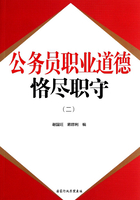(4.xvii.2) Suppose that broad cloth is in England twenty shillings per yard; that linen, ifmade at home, would be three shillings per yard: that in Germany, on the contrary, linen is at twoshillings per yard; and that broad cloth, if made there, would be twenty-four shillings per yard.
(4.xvii.3) It has been already seen, how, in these circumstances, it would be the interest ofEngland to employ her labour in ****** broad cloth for Germany, instead of linen for herself;and that of Germany, in ****** linen for England, instead of broad cloth for herself.
(4.xvii.4) If, in these circumstances, a tax in England were laid upon broad cloth, whichraised the price to twenty-four shillings, what would be the consequence?
(4.xvii.5) In the first place, it is evident, that no broad cloth could be exported to Germany.
The price, however, of linen, would still be so low in Germany, that it would be imported intoEngland. Money, instead of cloth, would go abroad to pay for it. Money, therefore, wouldbecome comparatively scarce in England; and prices would fall. It would become comparativelyabundant in Germany, and prices would rise. Linen would, therefore, become too dear to beimported into England; unless in the mean time some other commodity, in consequence of theincreasing value of money, became cheap enough in England to allow exportation. In the firstcase, England would, by a tax upon her own broad cloth, be deprived of the advantage ofobtaining cheap linen from Germany, and would be obliged to produce it for herself. In the othercase, she would be compelled to export, in exchange for the linen, another commodity, which,by the supposition, she produced on less favourable terms than the first.
(4.xvii.6) In this manner it is evident that, by a tax imposed. upon broad cloth, the people ofEngland would suffer, not only by paying the tax upon broad cloth, but by being obliged to paymore also for their linen.
(4.xvii.7) The effect of this tax upon prices would be, to raise the money value of broadcloth, and to lower the money value of all other commodities: not to raise, at least permanently, theprice of cloth to the whole amount of the tax; because it would send part of the money out of thecountry: to lower the price of all other commodities, because by this departure of the money, thevalue of money would be raised.
(4.xvii.8) If, when the tax was imposed upon broad cloth, a drawback of the whole of theduty was allowed upon exportation, there would be no alteration in the trade with Germany; Englishbroadcloth would be sent there, and linen would be imported, on the same terms as before. Thepeople of England would sustain the burden of the tax, and would suffer no other injury. Therewould be no transit of the precious metals. The price of broad cloth would be raised in England: and the price of all other things would remain as before.
(4.xvii.9) Even if no drawback were allowed, taxes have not a necessary tendency to lessenthe quantity of foreign trade. Though England, as in the case already supposed, were hindered, bythe tax on broad cloth, from exporting broad cloth; she might soon, by the transit of money, haveit in her power to export some other commodity. The reason of this case, it will easily be seen,applies to all other cases. A highly taxed country may possibly export to as great an extent as ifshe had not been taxed at all. If care, however, has not been taken, and it seldom is taken, tocompensate exactly for established duties by countervailing duties and drawbacks, it does notexport with the same advantage.
(4.xvii.10) There are two cases, in which the money cost of commodities may be raised bytaxation: that in which commodities to any number are taxed one by one, as in the instance, justadduced, of broad cloth; and that in which all commodities are taxed by an ad valorem duty. Inneither of these cases, it will be seen, has the high price of commodities, in other words, the lowpurchasing power of money, a necessary tendency to send money out of the country.
(4.xvii.11) In the case adduced above, the broad cloth alone was enhanced in price by thetax.
The purchasing power of money was lessened, therefore, only in respect to broad cloth. Butmoney could not go out of the country with any greater advantage to purchase broad cloth;because that commodity, on importation, would have to pay the tax; and there would not be anew distribution of the precious metal, if the tax were drawn back.
(4.xvii.12) Neither would an ad valorem duty, though it would raise, in the manner alreadyexplained, the price of all commodities, and reduce the purchasing power of money, have atendency to send money out of the country. Suppose the duty ten per cent; and the purchasingpower of money reduced as much below the level of the surrounding countries. It would be of noavail to the merchant that his money would purchase ten per cent. more of goods abroad, if hewere obliged to pay ten per cent. duty upon their importation. It thus appears, that, if drawbacksand countervailing duties are applied upon exportation and importation, the price ofcommodities in one country may be raised to any extent above their price in the surroundingcountries.















